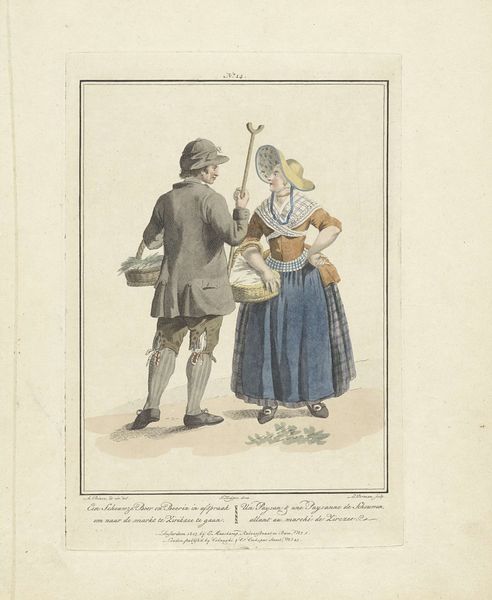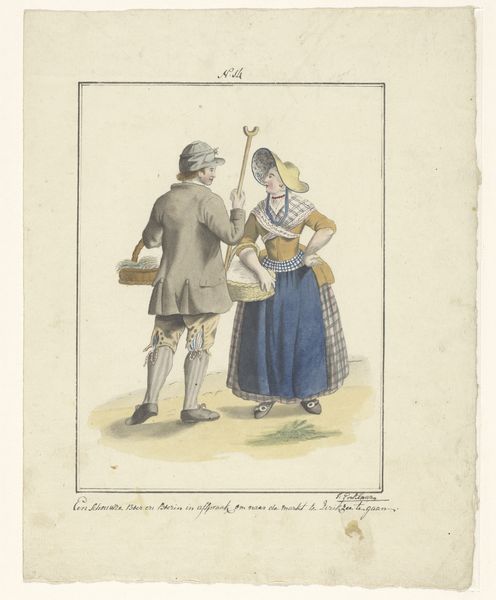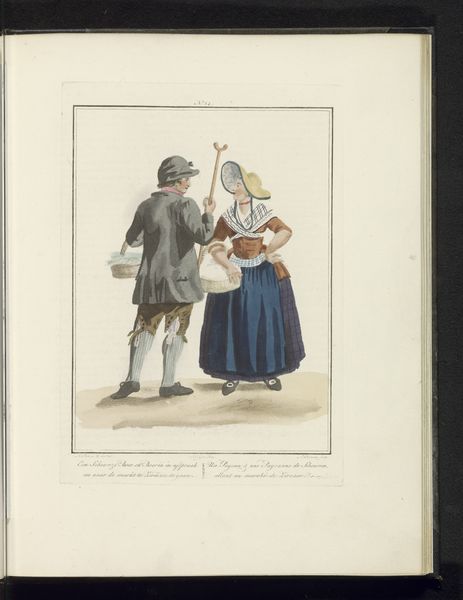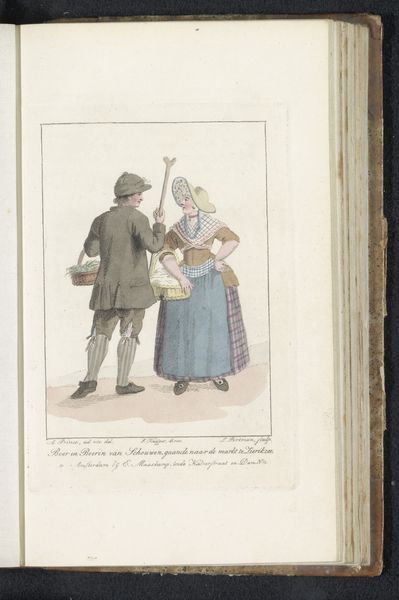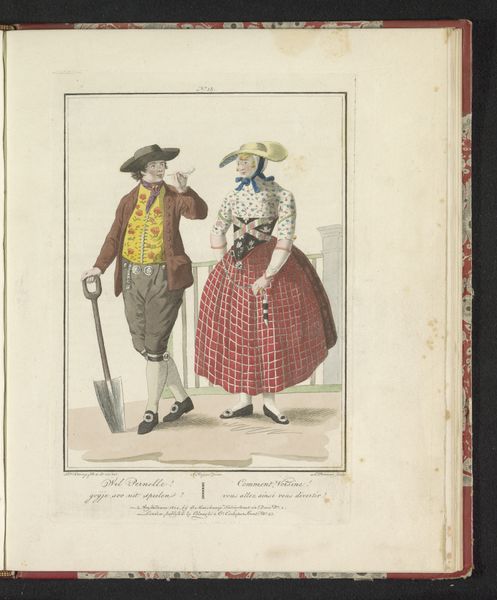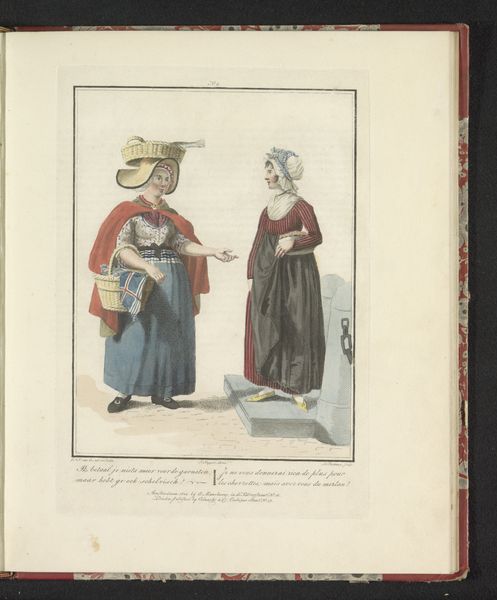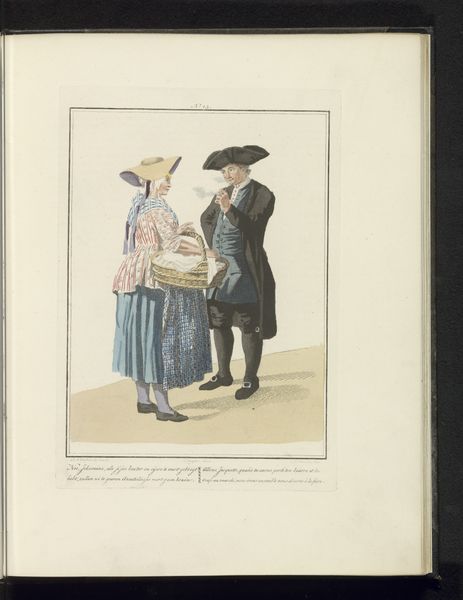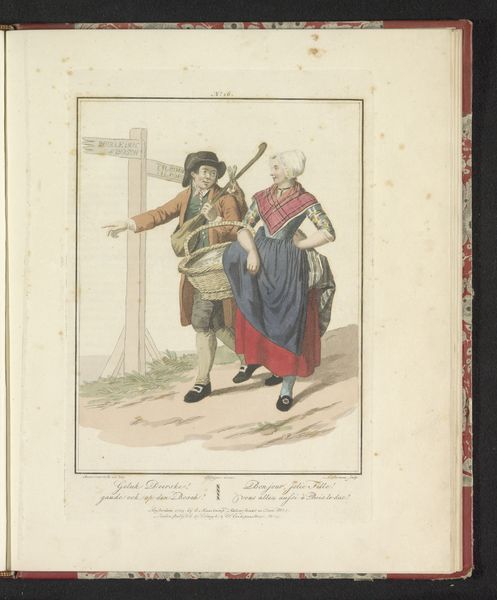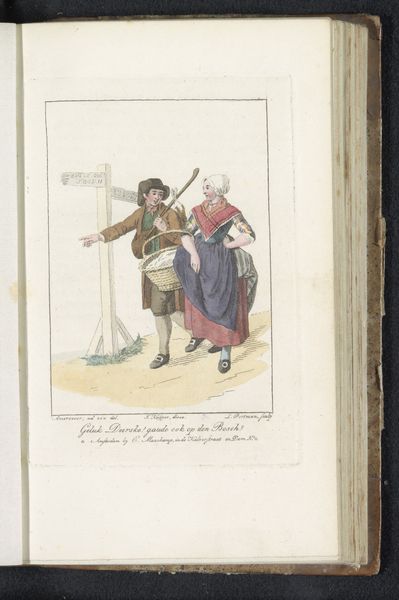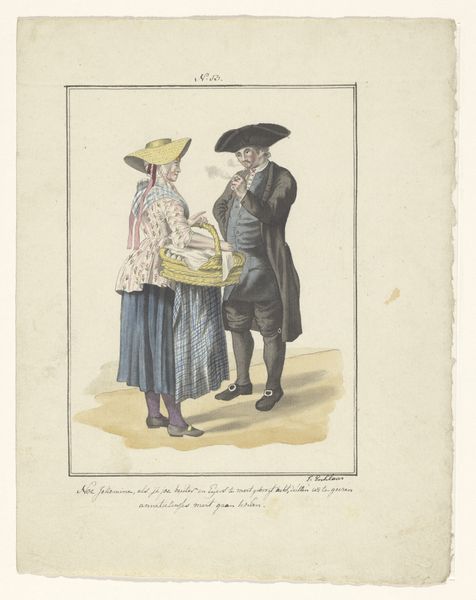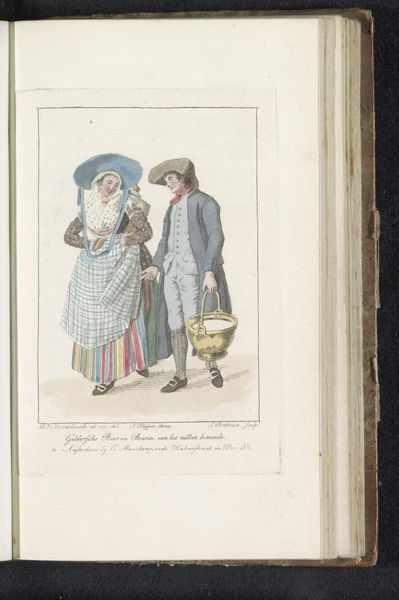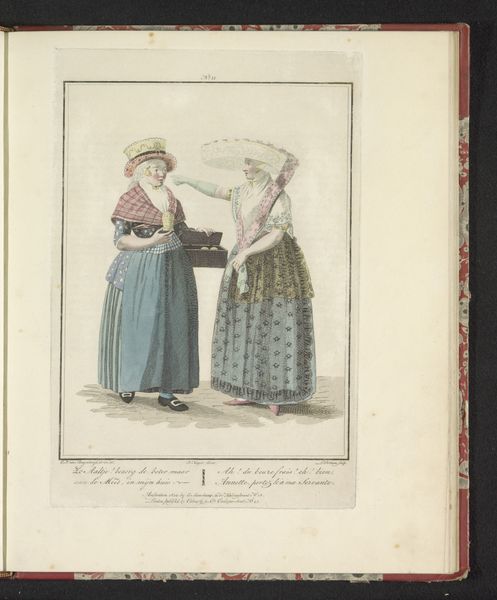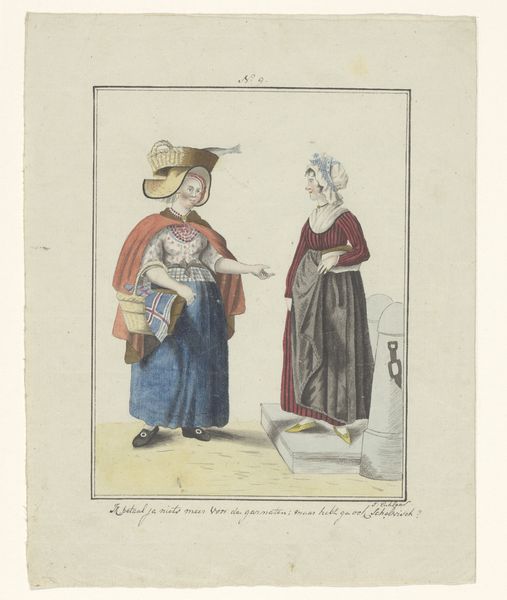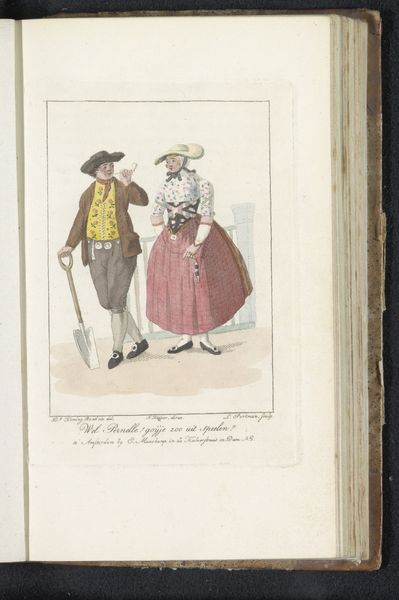
drawing, watercolor
#
portrait
#
drawing
#
water colours
#
watercolor
#
coloured pencil
#
romanticism
#
genre-painting
#
watercolor
Dimensions: height 236 mm, width 161 mm
Copyright: Rijks Museum: Open Domain
Editor: So, this is "Man en vrouw van Schouwen," or "Man and Woman of Schouwen" created in 1805 by Ludwig Gottlieb Portman. It's a watercolor and coloured pencil drawing housed at the Rijksmuseum. It has a distinctly ethnographic feel; their outfits and postures seem carefully documented. What stands out to you? Curator: Indeed, it's a wonderful example of early 19th-century interest in regional cultures. The focus here, arguably, is not just on representing individuals, but also on recording and classifying them as types within a broader Dutch national identity. What kind of politics are at play in deciding who gets represented, and how? Editor: That’s fascinating! So, the artist isn't simply capturing individuals; he’s contributing to a kind of…visual inventory of Dutch citizens? Do you think the “Romanticism” tag applies here, or is there something else? Curator: Absolutely. Think about the Romantic movement's fascination with the "authentic" and "natural" - often sought in rural settings. Now consider this image and think about the art market; works like this often played into urban consumers' idealized notions of rural life, while reinforcing existing social hierarchies. What stories do museums often omit, even with innocuous works such as this? Editor: That’s so interesting; the idea that even genre scenes could participate in creating, and perpetuating, such ideas is really striking. I'll definitely be thinking about this artwork, and museums more generally, with fresh eyes now. Curator: Precisely, how institutions make meaning shapes historical reception of artwork.
Comments
No comments
Be the first to comment and join the conversation on the ultimate creative platform.
